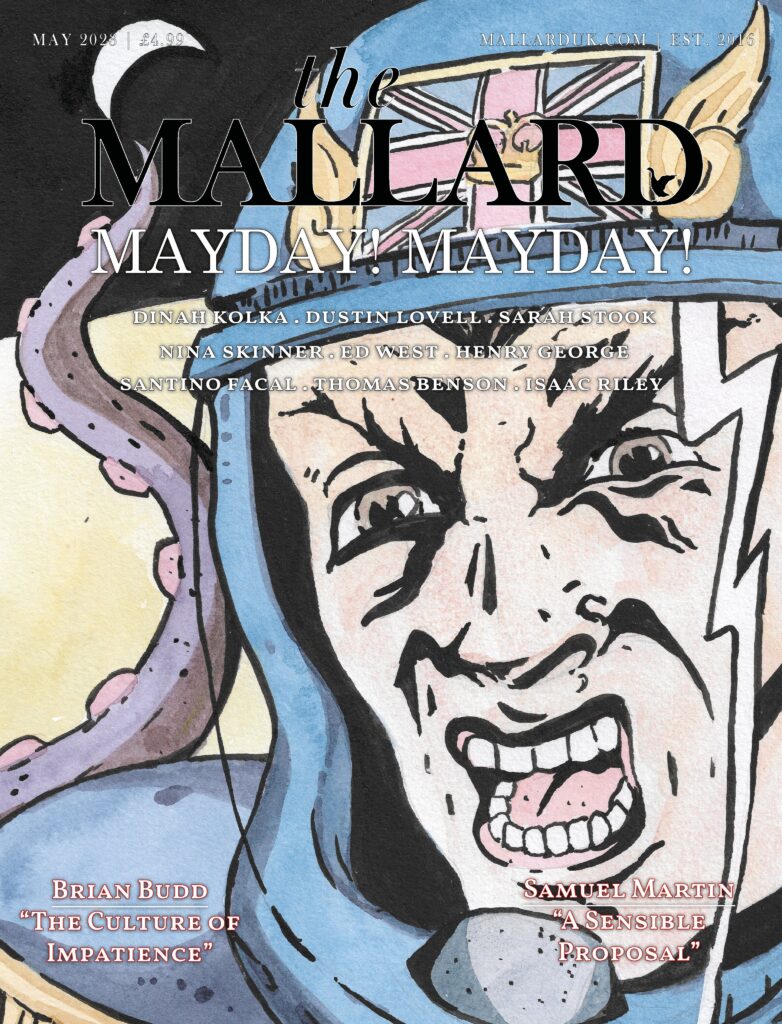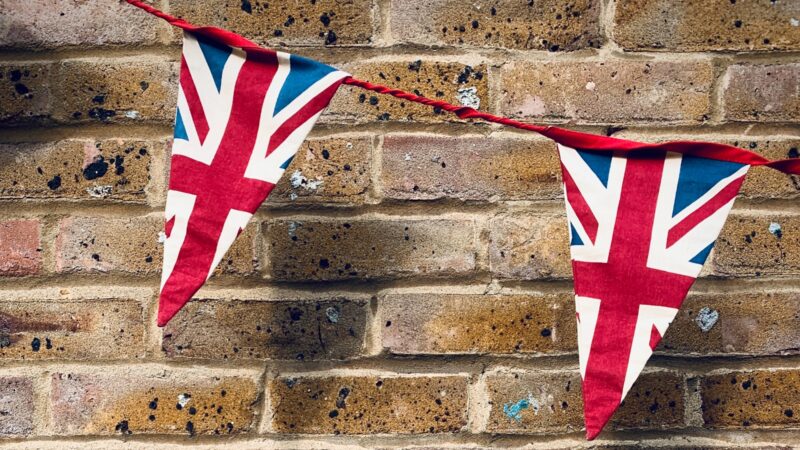With the recent debates surrounding AI improvement and the somewhat imminent AI takeover, I thought it would be interesting to return to the 20th century to analyse the debates on the rise of the machine and what we can learn from it today.
The early 20th century marked a time when the technological revolution was in full swing. With radio, mechanised factory work, and the First World War marked the new era of mechanised warfare, the intellectuals of the day were trying to make sense of this new modernised society. With the speed at which the changes occurred, people’s conception of reality was lagging.
The machine has narrowed spaces between people – the car allowed people to traverse space faster, and radio and telephone brought closer and practically instantaneous access to one’s family, friends, and acquaintances. The jobs were mechanised and people, as idealised by Marx, had the potential of being the ‘mere minders of the machine’. We are now entering another era. A time when Artificial Intelligence has the potential to replace most jobs. This is what Fisher in Post-Capitalist Desire has considered an opportunity for a post-scarcity society. But is this possible? Or rather should we heed Nick Land’s warning in Machinic Desire where he advised:
“Zaibatsus flip into sentience as the market melts to automatism, politics is cryogenized and dumped into the liquid-helium meatstore, drugs migrate onto neurosoft viruses, and immunity is grated-open against jagged reefs of feral AI explosion, Kali culture, digital dance-dependency, black shamanism epidemic, and schizolupic break-outs from the bin.” (Land, Fanged Noumena, 2011)
But let’s thrust away the shatters of this neo-automation and return to 1912, the time when this has only just begun.
Gilbert Gannan, in an article for Rhythm, wrote:
“Life is far too good and far too precious a thing to be smudged with mechanical morality, and fenced about with mechanical lies, and wasted on mechanical acquaintanceships when there are splendid friendships and lovely loves in which the imagination can find warm comradeship and adventure, lose and find itself, and obtain life, which may or may not be everlasting.” (Gannan, 1912)
In a quasi-perennial argument, he claims that mechanical morality and mechanism, in general, will never replace the real deal – the real concrete friendships and those we love.

This is an excerpt from “Mayday! Mayday!”. To continue reading, visit The Mallard’s Shopify.
You Might also like
-
A New British Bill of Rights will Keep Everyone Happy
Human rights are controversial. They probably shouldn’t be, being instead something we should all be able to rally around as the bare minimum we can do to protect our fellow man from the harms that could be inflicted upon them by the cruel. But that is not the case. As with most other things, human rights have been co-opted by both sides of the debate to feed the war-machines of angst. The Rwanda immigration policy is the latest battleground, but it won’t be the last. This will never fully be resolved, but a new British Bill of Rights will go a long way.
Personally I have never been a fan of a codified set of rights. I am not sure we need to be told by a specific document that we have the right to life. It should transcend a piece of paper into our way of being. We have, being a civilised people here in the United Kingdom, worked it out on our own, with many of the rights we have anticipated in the European Convention on Human Rights.
But that is often forgotten due to this constitution-style system. People seem to forget that these rights are as human to us as breathing, and that they didn’t just burst into existence upon drafting. The only time this happened was at Mount Sinai, and even then, I would contend that most of them were already held within the hearts and minds of the assembled peoples who heard them. Codified sets of rights take on a mythical status, used by those of a more puritanical bent to suggest that without said list, we would all fall the next day into some purge-like hellscape, acting with horrendous disregard for all others.
However, just as nature abhors a vacuum, the cogs of the judicial system thrive on vagaries. There will always be room for interpretation (especially, somewhat ironically, with things so fundamental), so it is the lesser of the evils to have these rights written down for all to see, so our intent is clear. There will always be lacunas to fill, but you can rest easy knowing it will be by like-minded individuals, attuned to the clear direction of the people they will impact, understanding their tradition, position, and direction.
But that isn’t the case as things stand, and it is where most of the current controversy around human rights actually sits. As things stand, we have a scenario where the interpretation of these fundamental items, these things so personal to a people, is conducted supranational, by a group not attuned to how these rights are embedded within us, and how we in the UK wish them to be used. It sows division within our country to have these matters decided for us, outside of our own structures that we have built to govern and protect each other.
Of course, we did sign up, there was originally consent for this position, but we are a long way now from the post-war mindset that led to the ECHR being created. We have moved on. Not to the extent that we wish to abandon any of the rights themselves (no matter what certain commentators would have you believe), but in terms of how we wish the grey to be made black and white.
The best thing to do, therefore, is to withdraw from the ECHR, and recreate the convention as an Act of Parliament. It shouldn’t be too difficult, given how involved in the drafting we were in the first place. This glorious legislation should then be given the fanfare and patriotic name it deserves. And in doing so we will free ourselves from the shackles of the current situation, while still providing a beacon of hope for all to rally around.
Each side should be happy with the result.
As the precious document will still exist, the ‘frothers-in-chief’ will be content that the UK won’t slip into lawlessness overnight, while the rest of us can be happy that we will be in the position where any interpretation is done within our own judicial structure, using our thought processes, aligned to our own (lower order, but still important) values.
There will still be much need to call on the judiciary to interpret our fundamental rights, and there will still be cases that cause division. But we will be able to at least point to our own shared national heritage, and our wonderful common law, as the reasoning for these decisions. They will have been made by us, for us, to protect us. Just like our human rights.
Post Views: 410 -
Britain Is No Longer a Land of Opportunity
A recent viral tweet showed two doctors leaving a hospital. They’ve surrendered their licenses to practice medicine in Britain and are instead heading off to work in Australia. It’s not unusual- the majority of foreign doctors in Australia are Brits. The problem lies in the fact that young, educated doctors do not see themselves thriving in Britain. Our pay and conditions are not good enough for them.
Are you annoyed at them for being educated through taxpayer funding before going abroad? Many are. Are you understanding as to why? So are others.
Whilst this particular tale does come down to problems with the NHS, it’s also an example of what is wrong with Britain at the moment. People, especially younger ones, haven’t got the opportunities that they should have. There is no aspiration. There is a lot to reach for and not a lot to grab.
What has happened?
Wages and Salaries and Income, Oh My!
A recent investigation by a think tank has revealed that 15 years of economic stagnation has seen Brits losing £11K a year in wages. Let’s put this into perspective. Poland and Eastern Europe are seeing a rise in GDP- Poland is projected to be richer than us in 12 years should our economic growth remain the same. The lowest earners in Britain have a 20% weaker standard of living than Slovenians in the same situation.
That’s a lot of numbers to say that wages and salaries aren’t that great.
By historical standards, the tax burden in the U.K. is very high. COVID saw the government pumping money into furlough schemes and healthcare. As the population ages, there is a further need for health and social care support. This results in taxes eating into a larger amount of our income. In fact, more adults than ever are paying 40% or above in taxation. It’s a significant number. One might argue that this does generally only apply to the rich and thus 40% is not a high amount for them, but is that a fair number?
With inflation increasing costs and house prices rising (more on that later), a decent standard of living is beyond the reach of many. This is certainly true for young people. With wages and salaries falling in real time, we do not have the same opportunities as our parents and grandparents. Families used to be able to live comfortably on one wage, something that is near impossible. Our taxes are going on healthcare for an aging population.
Do we want old people to die? Of course not. We just do not have the benefits that they did. Our income is going towards their comfort. Pensioners have higher incomes than working age people.
Compared to the United States, Brits have lower wages. One can argue that it is down to several things- more paid holidays and taxpayer funded healthcare. That is true, and many Brits will proudly compare the NHS to the American healthcare system. That is fine, but when the NHS is in constant crisis, we don’t seem to be getting our money’s worth. The average American salary is 12K higher than the average Brit’s. The typical US household is 64% richer. Whilst places like New York and San Francisco have extortionate house prices, it’s generally cheaper across the US.
Which brings us onto housing.
A House is Not a Home
Houses are expensive- they are at about 8.8% higher than the average income. This is compared to 4% in the 1990s. That itself is an immediate roadblock to many. Considering how salaries have stagnated, as discussed in the previous section, it’s only obvious that homeowning is a dream as opposed to reality.
Rent is not exactly affordable either. In London, the average renter spends more than half of their income on rent. Stories of people queuing for days and landlords taking much higher offers are commonplace.
House building itself is not cheap- the price of bricks have absolutely rocketed over recent years. Factors include a shortage of housing stock and increased utilities. House building itself is also not easy.
NIMBYs have an aneurysm at the thought of an abandoned bingo hall being turned into housing. MPs in leafy suburbs push against any new developments, lest their wealthy parishioners vote for somebody else. Theresa Villiers, whose constituency sees homes average twice the U.K. mean price, led Tory MPs in an attempt to prevent house building targets.
We get the older folks telling us that we just need to work harder. It’s easy for them to say, considering a higher proportion of our income is needed to just get a damn deposit. If we’re paying more and more of our income on rent, how can we save?
Playing Mummy and Daddy
The ambition to become a parent is something many hold, but it is again an ambition that is unattainable. Well, the actual having the child part is easy, but it’s what comes after that makes it tough.
Firstly, we cannot get our own homes. Few want to raise their children in one bed flats with no gardens. To plan for a child is to likely plan a move.
Secondly, childcare is very expensive. Years and years ago, men went to work and women stayed home with the children as a rule. Of course, that did not apply to the working class, but it was a workable system. Nowadays, you both have to work. Few can survive on a single income from either parent. Grandparents are often working themselves or simply don’t/can’t provide babysitting duties. This leaves only one choice- professional childcare. The average cost of childcare during the summer holidays is £943. Some parents pay more than half of their wages on childcare.
Thirdly, as has been said, everything is more expensive these days. One only has to look at something basic like school uniforms- some spend over £300 per child. It’s not cheap to look after adults, let alone children.
The Golden Years
The focus of this piece is generally on young and working age people, but the cost of social care is pretty bad. With the costs of home and residential health care increasing constantly, it means that many will lose their hard earned savings. Houses must be sold and pensions given up. It is unfair that we must work all of our lives but then leave nothing for our children if we wish. Whilst residential homes are alien concepts to many in cultures where they look after the elderly, many factors in the U.K. mean that it is more common.
On balance, pensioners are better off than the young, but what about those who need care? It may be bad now, but what about when we ourselves are old? We will likely still be working at 70 and having to pay more for our care.
The Party of Aspiration and 13 Years of Power
The Conservatives have always called themselves the party of aspiration. They’ve been in power for 13 years, eight of which were without a coalition party. The Tories won a stunning majority in 2019 under Boris Johnson. They’ve had the opportunity to do something about this but haven’t. It’s amazing that they wonder why young people don’t vote for them anymore.
Let’s not pretend Labour and the Lib Dems are any better either. The Lib Dems won the historical Tory seat of Chesham and Amersham partially by appealing to those worried about new housing. Labour’s plans aren’t particularly inspiring.
We cannot dream in Britain anymore. The land of hard work and fair reward is no more. We must simply sit by as our wages stagnate, houses get too expensive and the opportunity for family passes us by. Our doctors head to Australia for better pay and better conditions. Countries that would see immigrants come to us for a better life are seeing their own economies grow.
People shouldn’t be living with roommates in their 30s when what they want is a family. We deserve to work hard to secure a good future. We don’t deserve for our income to go on poor services and for our savings to go on residential care.
The Tories have had thirteen years to sort it out. Labour and the Lib Dems have had chances to put their plans across. Our politicians care more about talking points and pretty photo ops than improving our lives.
Let us have ambition. Let us seek opportunities. Let Britain be a land of opportunity once again.
Post Views: 768 -
The Identity Crisis of Young Conservatives
While boomers indulge themselves in the same 2016 talking points on GB News for the 68th time this week, it seems like young conservatives are tired of it. The right wing of Generation Z have been raised on “Ben Shapiro DESTROYS Liberal Student” compilations. Meanwhile, while the conservative young people have moved on, the “triggered leftist” has moved on from university and into our civil service or primary schools, increasing their influence in society. And as much as we’d like to move on from cringe culture war issues, it seems like they’re not going anywhere. If we don’t confront them effectively then the left will continue to infect our institutions.
The left call the right “racist, sexist, homophobic, bigoted!” Each adjective enough to make the average wet Tory squeal apologetically and disregard the history of the party that has been told through a left wing narrative. Instead of giving the conservative argument for why an actual Conservative politician has done something, they say “yes, I know that was bad but what about this…” and then proceed to state a left wing policy pushed by a so called “right winger”.
And what do the right call the left to match their accusations of bigotry?
“Snowflakes”
It doesn’t quite have the same effect, does it?
The problem with the right is that they’re missing their own vocabulary. We don’t have the same words that appeal to the general public’s emotion as the left do. They say that we hate the poor and minorities. They say we want poor kids to starve. They say that we’re selfish. Of course, we know that’s not true. We want to see our country and community thrive.
However, unlike the left, we haven’t had mainstream institutions providing us with arguments to make. The right of Gen Z can’t have their social media pages flooded with aesthetic infographics simplifying radical Marxist rhetoric into simple slogans like the left do because there aren’t many conservative equivalents. Go onto #BorisJohnson and you’ll just see posts on how corrupt the Tories are and how Boris is a blubbering fool. Browse #KeirStarmer and you’ll see posts on Labour victories and how they’re crushing the Tories.
The Conservative Party doesn’t help with the government wasting their majority by not pushing any actual conservative policies and instead needlessly pander towards the left while they butcher the name of actual conservatives like Thatcher and Churchill to justify it. Even within the general party, a concerning number of Young Conservatives are pro-BLM and believe that a biological man in a dress is a woman. These people either have no backbone or are careerists who won’t join the Liberal Democrats because they’re irrelevant. Either way, kick them out.
Then you have the Young Conservatives who like a few Thatcher quotes and believe in general conservative principles like “free enterprise” and “equal opportunity” (which, let’s be honest, are more liberal principles). However, you can’t blame them too harshly considering that it’s much harder to discover right wing philosophy and history in comparison to that of the left. Ask an A Level Politics teacher for book recommendations and they’ll probably recommend Karl Marx’s The Communist Manifesto or Owen Jones’ Chavs. Similarly, go into Waterstones and the politics section catering ranges from septum piercing Sociology students to Keynesian #FBPE Britpoppers. Maybe you’ll find Douglas Murray’s Madness of the crowd between all the prison abolitionist and Europhile literature if you’re lucky.
However, since this generation of Young Conservatives have to go out their way to find the charm of Peter Hitchens or Roger Scruton, is it any wonder they resort to cheap arguments that the reason the left is so bad is that they’re too “progressive”?
The problem with Black Lives Matter isn’t that the activists are too sensitive. It’s that they’re promoting divisive, radical racial politics and harming people and property as a means of doing so. We shouldn’t have to say “but if the right did that then we would never hear the end of it”, we need to control the narrative. After months of destroying cities, causing damage and ruining lives, it’s ridiculous that January 6th is the focus of political extremism in the US.
After the death of George Floyd, the mainstream narrative needed a problem and a solution. They decided the problem was racism and police brutality and that the solution was police abolition and divisive critical race theory. They used it as an opportunity to sneak in other themes such as Marxism and collectivism while silencing anyone who disagreed with their dogma as “racist”. The average person who didn’t care too much about politics will just carelessly accept this narrative in order to fit in when their friends and co-workers discuss it at work.
The right could’ve offered their own solutions to the problems. A law and order argument could be called for more community policing and police accountability. Instead the right had to go on the defence, leading to the phrase “All Lives Matter” which was just received by the public of being covering up racism. We need to be proactive instead of reactive.
Similarly with transgender ideology, the right shouldn’t be focused on pronoun badges. If I was the average apolitical person and I saw that the biggest issue the right is concerned about is pronoun badges, then I’d call them “snowflakes”. They should be focused on the fact that there are perverted men trying to get their way into women’s spaces (oftentimes spaces where they are most vulnerable like domestic violence shelters) and silence any woman who speaks out about it. They should be focused on the fact that there are actors in our institutions who are trying to have conversations with children about sexuality and confuse them into later seeking out unnecessary surgery which mutilates their bodies.
If the right wants to succeed then they need to equip themselves with the right words and slogans. This is why Ron DeSantis is successful in Florida: by switching the narrative he has turned the “Don’t Say Gay Bill” into the “Anti Groomer Bill”. British Conservatives need to learn from this. It’s understandable to be fed up with the over usage of the current culture war vocabulary. However, you need to find an alternative to replace it because these issues aren’t going away.
Photo Credit
Post Views: 582



